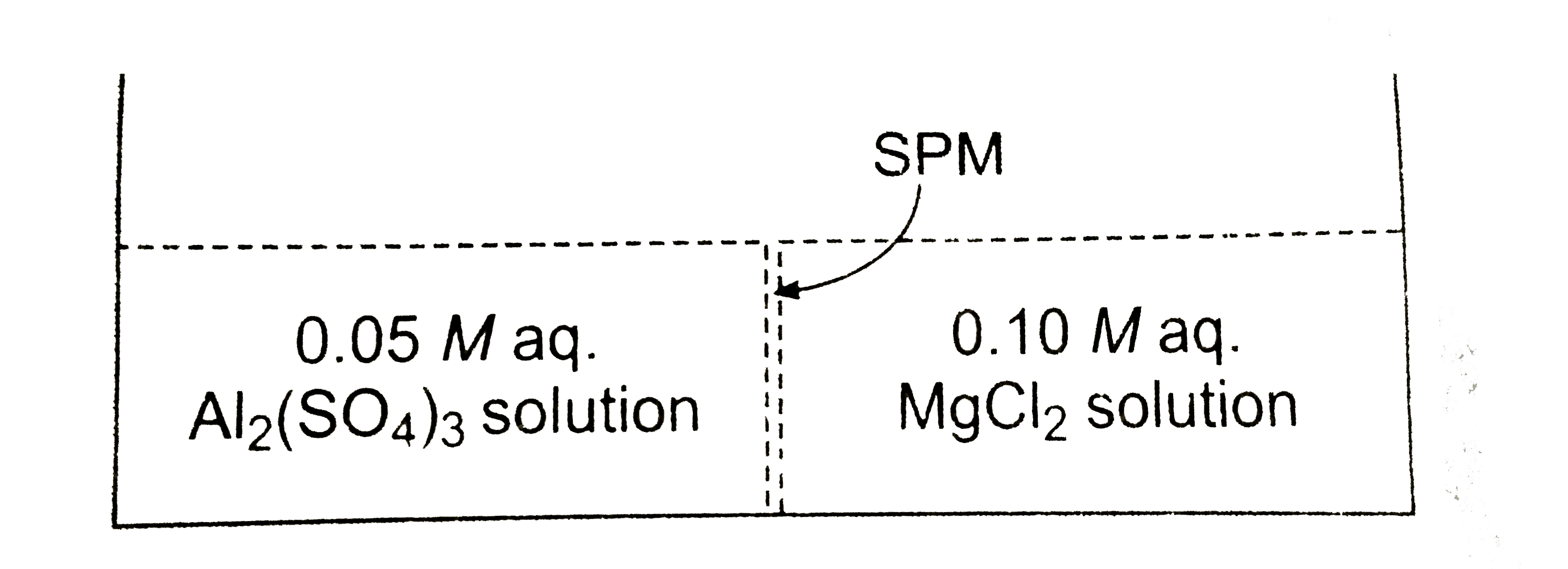If 0.1 M solutions of the following electrolytes are taken and if all electrolytes are completely dissociated, then whose boiling point will be highest?
AlCl3
KCl
BaCl2
K4[Fe(CN)6]
To determine which 0.1 M electrolyte solution will have the highest boiling point, we need to consider the concept of boiling point elevation, which is a colligative property. This property depends on the number of solute particles in the solution rather than the nature of the solute itself. Here’s a step-by-step breakdown of the solution:
Step 1: Understand Colligative Properties
Colligative properties depend on the number of solute particles in a solution. The elevation in boiling point (ΔT_b) can be calculated using the formula:
ΔTb=i⋅Kb⋅m
where:
- i = van 't Hoff factor (number of particles the solute dissociates into)
- Kb = ebullioscopic constant (a property of the solvent)
- m = molality of the solution
Since all solutions are 0.1 M, we can focus on the van 't Hoff factor i.
Step 2: Calculate the van 't Hoff Factor for Each Electrolyte
We will analyze the dissociation of each electrolyte to find the van 't Hoff factor i:
1. AlCl3:
- Dissociates into 1 Al³⁺ and 3 Cl⁻ ions.
- Total particles = 1 + 3 = 4
- i=4
2. KCl:
- Dissociates into 1 K⁺ and 1 Cl⁻ ion.
- Total particles = 1 + 1 = 2
- i=2
3. BaCl2:
- Dissociates into 1 Ba²⁺ and 2 Cl⁻ ions.
- Total particles = 1 + 2 = 3
- i=3
4. K4(Fe(CN)6):
- Dissociates into 4 K⁺ and 1 (Fe(CN)6)⁴⁻ ion.
- Total particles = 4 + 1 = 5
- i=5
Step 3: Compare the van 't Hoff Factors
Now we compare the values of i for each electrolyte:
- AlCl3: i=4
- KCl: i=2
- BaCl2: i=3
- K4(Fe(CN)6): i=5
Step 4: Determine the Highest Boiling Point
The boiling point elevation is directly proportional to the van 't Hoff factor i. The higher the value of i, the greater the elevation in boiling point.
From our calculations:
- K4(Fe(CN)6) has the highest i value of 5.
Conclusion
Thus, the 0.1 M solution of K4(Fe(CN)6) will have the highest boiling point among the given electrolytes.
Colligative properties depend on the number of solute particles in a solution. The elevation in boiling point (ΔT_b) can be calculated using the formula:
ΔTb=i⋅Kb⋅m
where:
- i = van 't Hoff factor (number of particles the solute dissociates into)
- Kb = ebullioscopic constant (a property of the solvent)
- m = molality of the solution
We will analyze the dissociation of each electrolyte to find the van 't Hoff factor i:
- Dissociates into 1 Al³⁺ and 3 Cl⁻ ions.
- Total particles = 1 + 3 = 4
- i=4
- Dissociates into 1 K⁺ and 1 Cl⁻ ion.
- Total particles = 1 + 1 = 2
- i=2
- Dissociates into 1 Ba²⁺ and 2 Cl⁻ ions.
- Total particles = 1 + 2 = 3
- i=3
- Dissociates into 4 K⁺ and 1 (Fe(CN)6)⁴⁻ ion.
- Total particles = 4 + 1 = 5
- i=5
Now we compare the values of i for each electrolyte:
- AlCl3: i=4
- KCl: i=2
- BaCl2: i=3
- K4(Fe(CN)6): i=5
The boiling point elevation is directly proportional to the van 't Hoff factor i. The higher the value of i, the greater the elevation in boiling point.
- K4(Fe(CN)6) has the highest i value of 5.
Thus, the 0.1 M solution of K4(Fe(CN)6) will have the highest boiling point among the given electrolytes.
Similar Questions
Knowledge Check
In 0.1 M solution of a non electrolyte, ΨW value will be :
Azero barB+2.3 barC−2.3 barD−22.4 bar0.1 M solution of soulte (non-electrolyte ) will have a water potntial of
A−2.3 barsBZeroC2.3 barsD22.4 barsWhich of the following solution have highest boiling point. (Assume all salts completely dissociates)
A0.1 M Al2(SO4)3B0.1 MBaCI2C0.1 M glucoseD0.1 MAlCI3
Statement-1 : When NaOH and H2SO4 solutions are mixed, the resulting solution is always neutral
Statement-2 : Both NaOH and H2SO4 are strong electrolytes and are completely dissociated in aqueous solution.
View SolutionFor 0.1 m aq. Solution of given electrolytes correct order of their increasing order of boiling point :
View SolutionStudy the following figure and choose the correct options. Assuming complete dissociation of electrolyte:

View SolutionWhich of the following solutions will have the highest boiling point
View SolutionWhich of the following solutions will have the highest boiling point ?
View Solution

